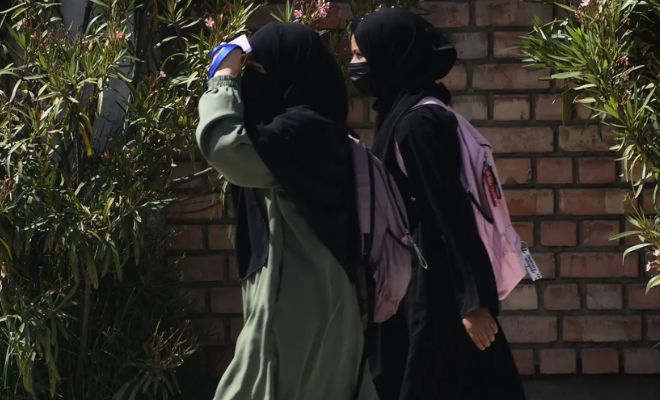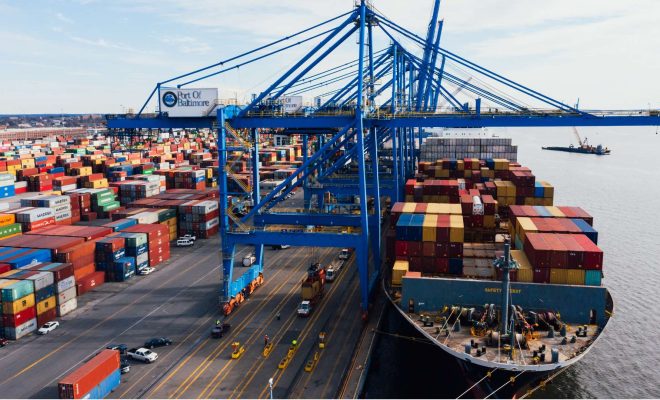Exposing Anti-Muslim Hate – Resisting Bill 21

Earlier this month, Fatemeh Anvari – a Grade 3 teacher from Chelsea Public School in Quebec – was fired from her job for wearing a hijab. She was removed under Bill 21, a Quebec law that bars public employees in positions of authority from wearing religious symbols.
Although the Quebec High Court had ruled to weaken the law’s impact by saying it could not be applied to English language schools, like the abovementioned school, Fatemeh remains unable to teach because the High Court ruling is being appealed by the Quebec government.
Fatema’s firing has created some noise in Canadian politics. Four Conservative party MPs expressed their moral objection to the Bill, and it prompted the leaders of all political parties to issue statements in relation to the legislation.
While he said he disagreed with the bill, Trudeau argued that it would be strategically unwise for him to intervene directly in the matter at the moment. Conservative leader, O’Toole, also expressed disagreement with the law but said that the people of Quebec need to make their own choices. Jagmeet Singh of the NDP, said he experienced this kind of hatred in his personal life, and added that the law was “wrong.”
What does this new scrutiny towards a symbol of Islam mean for Muslims in Canada? What does this incident demand of us?
This is What Democracy Looks Like!
To begin with, we have to recognize that the situation is driven by the corruption of the democratic system. For the political parties to win an election, they have a choice to make. They can either take a principled stand, or pander to the racist elements in Quebec society for votes.
This is an easy choice for the Conservatives, who have a history of openly targeting Muslims (e.g., banning the niqab during the citizenship ceremony, sponsoring the Cultural Barbaric Practices Act, and calling “Islamism” the biggest threat to Canada).
But what about the Liberals and the NDP? Neither one of them explicitly condemned the bill in the last two elections.
In fact, in the Quebec English-language debate, the moderator, who asked Parti Quebecois’ leader why he backed the blatantly discriminatory bill, was criticized by all three major parties. The Liberals and the Conservatives argued that her question was insulting to the Quebecois people by implying they were all racist – an implication that was not present in her question.
And even Jagmeet Singh, who wears a turban that is considered a religious symbol, said that he felt the question singled out Quebec. They would not even let a moderator in a federal election debate challenge the politicians who are in support of the only hijab ban in North America. The intolerant sentiments, and more importantly, the votes of bigots in Quebec are more important to politicians than the rights of Muslim women being violated!
Do Not Just Blame Racists in Quebec
This bill was not created and is not sustained in a vacuum either.
Rather, its existence is caused by every segment of Canada’s political order. This includes the liberal academics employed by the government to produce the Bouchard-Taylor Report, which first proposed the ban on religious symbols for government positions.
It caused local and provincial politicians across party lines and provinces to cast Muslim faith practices – from religious marriage arbitration to Friday high school khutbahs, to wearing niqab on the bus – as a problem.
This includes the media, who have always labelled Muslims as uniquely violent and hateful, for reasons as simple as refusing to work in mixed gender environments, or for peacefully expressing support for the liberation of Palestine.
It is sustained by federal politicians who, in the interest of getting votes, are unwilling to challenge bigotry. It is fueled by federal agencies, like the CRA, which systemically targets Muslim charities and foundations using guilt-by-association methods to suspend their charitable status.
And finally, it is upheld by the Canadian constitution which, through the notwithstanding clause, lets the freedom to worship of Canadians be an issue that the powerful in society can shape and manipulate for their political interests.
The Quebec High Court stated that Bill 21 was discriminatory, and that it did particular damage to the religious freedom and expression of Muslim women. However, the court was powerless to strike the law down because of the notwithstanding clause, which was written into the constitution.
Combined, these factors lay intense pressure against our deep-rooted Islamic values and practices. It leaves us Muslims isolated. It is obvious that the system, as a whole, failed to protect us.
How We Got Here
Overall, our vulnerability should not be a surprise. In Capitalist liberal democracies, the rights of minorities are negotiable or subject to the interests of the economic and political elite.
The indigenous/native peoples know this full well. Their values about sharing the land and its resources did not sit well with the Capitalist elites. So, the Capitalist settler-colonizer governments brutally stripped the indigenous of their land, splintered their families and communities, extinguished their culture and threw future generations into a vicious cycle of poverty and social ills.
The Capitalist system enables the rich and powerful to dominate over everyone else. Built on freedoms, the Capitalist ideology forces each and every individual to fend for themselves. This encourages and rewards those who possess the most amounts of wealth, talent, and other levers to “pull” society where they want and act selfishly. It is these rich and powerful men and women who fund politicians and election campaigns, shape the media narratives, and set the rules the rest of us must follow.
These elites advance their personal interests at the expense of the wider society. Their political system rewards those who bend on their stated principles to achieve those material interests. So, even those politicians who in their hearts may not believe in bigotry evidently end up supporting it just to score a little more political relevance and prolong their careers.
As well, these elites have interests in the Muslim lands. So, whenever they need to justify the violence, oppression and corruption they throw at our brothers and sisters, they brush Muslims and Islams as threats and backwards peoples. When Quebec’s political elite look to distract people from pressing issues like the crumbling healthcare system, our sisters are the easy scapegoat.
What Can We Do?
We must remember this: We are never alone. As an Ummah, we are globally united in our Aqeedah and, in turn, our deep-rooted struggle to obey Allah (swt)’s individual and collective commands. This ties us to every Muslim today, in the past and in the future. The struggles we face today are not new as they were faced by countless Muslims before us. We have actually been here before.
Moreover, we have Rasul’Allah (saw) and the Sahaba (ra) to guide us. They too were similarly vilified and criminalized on the streets of Makkah and Ta’if by the elite of Quraish. And they resisted until, by Allah (swt)’s permission, they received victory over their oppression. This is a timeless lesson for us.
What can we learn from the illustrious example of RasulAllah (saw) and the Sahabah (ra)?
First, we must unify our efforts in a single concerted effort to resist this bill. For example, the Sahaba (ra) were in Abyssinia faced possible extradition to Makkah. They did not splinter – rather, they unified under the leadership of Jafar ibn Abi Talib (ra) and appointed him their spokesperson. This shows us that we must also fight the bill with a united stand, especially in the courts of law and the court of public opinion, and with one voice.
Our message must call-out the futility of bigotry and, in turn, how it is only a distraction from the real challenges Canadians are facing, such as the collapse of the family unit, degradation of the environment, the exploitation that enriches the wealthy while leaving the majority too poor to afford a home and, increasingly, even the basics of life like food.
Second, we must avoid compromise. We must never fight for our deen in a way that erodes its values and rulings. Doing so would lead us to break the back of our own cause with our very own hands. For example, we cannot fight for hijab on the basis of ‘personal freedom.’ This is not an Islamic concept. Rather, we must fight for it as it is our ability to worship, a right Allah (swt) gave every human being.
Third, we must see the difference between seeking support from the larger non-Muslim society and integrating our efforts with the interests of the political establishment. If we are pointing out the futility of bigotry and oppression, we must engage the wider society, converse with grassroots organizations/groups, and take our message to anyone who wants to listen. But we must not let the federal political parties, or the security agencies take control or gain influence over our efforts or our community. We do not need to court politicians or give them access to our spaces of worship.
Will It Work?
Ultimately, we are in an uphill struggle. Localized campaigns against religious suppression against our Ummah, while much needed, is not the actual Islamic solution.
The oppression is baked into the very core of this system. The rights of any individual are negotiable in Capitalism and, as a result, any moral or political commitment has a price. We might win the fight against this bill, but there will always be a new bill down the line.
Our resistance to today’s bigotry is not the end our activism. It must be the beginning. If we do not couple our condemning xenophobic laws with explaining the just and comprehensive social, economic, and political systems of Islam, then we are simply cutting ourselves short.
If our advocacy for the poor and oppressed does not result in us sharing the Islamic vision for society, we have failed in our ultimate mission. And if our struggle against the cruelty of the political elite in Canada is not followed by our commitment to liberating the Muslim lands, and establishing Islamic rule there, we have not reached the solution to our problems.
This is because it is only the return of true Islamic leadership in the Muslim lands that will exemplify the justice and mercy of our Revealed values. And it is only a state that is built upon the guidance of Our Creator (swt) and the example of his Messenger (saw) that will advocate for Muslim minorities all over the world, from the suburbs of Quebec to the marketplaces of East Turkestan to the Rohingya refugee camps in Bangladesh.
Not only this, but this state will serve as a beacon of hope for the oppressed and the seekers of truth all over the globe. It will advocate for their needs, be committed to their salvation in the akhira, and will open its arms to anyone who is willing to live under its protection. May Allah (swt) grant us the honour to be part of the noble effort to revive it. Ameen!
“O believers! Do not associate closely with others who would not miss a chance to harm you. Their only desire is to see you suffer. Their prejudice has become evident from what they say—and what their hearts hide is far worse. We have made Our revelations clear to you, if only you understood” [TMQ 3:118]









